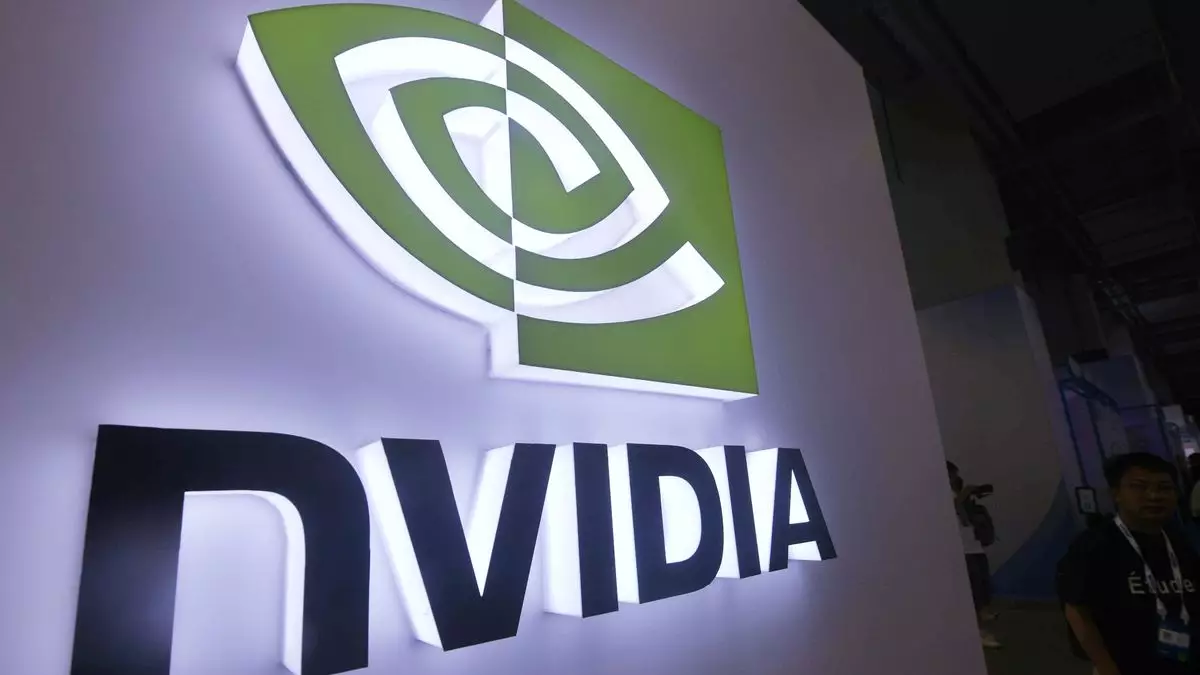The dynamic landscape of global semiconductor manufacturing is witnessing a significant shift as China embarks on an antitrust investigation targeting Nvidia. This scrutiny arises from concerns over potential infractions of China’s anti-monopoly laws related to Nvidia’s 2020 acquisition of Mellanox Technologies, an Israeli chipmaker. As the fabric of international technology and trade unravels under the weight of geopolitical tensions, this investigation reflects not only regulatory diligence but also a strategic pivot by China in response to increasing pressure from the United States.
In 2020, Nvidia acquired Mellanox Technologies for approximately $7 billion, a deal approved by Chinese regulators contingent upon specific assurances. Reports indicate that the approval hinged on Nvidia committing to non-discriminatory practices concerning Chinese firms and the obligation of Mellanox to share new product samples with rivals shortly after their release to Nvidia. This condition aimed to foster a competitive environment, ensuring that local companies retained performance parity in the rapidly evolving tech landscape. However, as Nvidia navigates the dual challenges of domestic regulation and international trade restrictions, the essence of these agreements is now under examination.
The antitrust inquiry adds another layer to the complex narrative, particularly when considering that US sanctions have materially influenced Nvidia’s operations. These sanctions limit Nvidia’s capacity to export certain products to China, presenting a quagmire that Nvidia has sought to circumvent. Notably, the creation of China-specific variants, such as the RTX 4090 D, illustrates Nvidia’s struggle to keep pace with demand while adhering to US regulations. Nvidia’s persistent efforts to tailor products for the Chinese market indicate not just operational flexibility but also a potential disregard for the original terms stipulated during the takeover.
The antitrust investigation comes amidst escalating indeed escalating technological tensions between the US and China, primarily revolving around semiconductor technologies. Earlier in 2023, US Commerce Secretary Gina Raimondo publicly criticized Nvidia’s initiative to design specific versions of its GPUs for the Chinese market, reinforcing the notion that the US government is vigilantly monitoring attempts to bypass export restrictions. Raimondo’s comments are emblematic of a growing apprehension within US authorities regarding China’s unabated access to advanced technology, particularly artificial intelligence chips—considered essential for modern advancements.
As this landscape evolves, Nvidia’s sales performance presents a paradox. While China previously accounted for 26% of Nvidia’s revenue, recent reports suggest a dramatic decline to 17% as local competitors grow increasingly adept at developing comparable technologies. This sharp downturn signals a shifting allegiance among Chinese consumers benefiting from homegrown innovations that might diverge from Nvidia’s offerings due in part to geopolitical rift ramifications.
Moreover, the Nvidia investigation mirrors China’s broader strategy of counteracting US-imposed restrictions. In response to the US government’s latest regulations on semiconductor manufacturing equipment, China has retaliated by imposing its own ban on the export of critical materials like gallium and germanium, which are vital for semiconductor production and electric vehicle batteries. These moves indicate an escalating technological arms race and show that both nations are willing to leverage their respective advantages to maintain national security and economic competitiveness.
Nvidia has expressed confidence in its practices and the merit-based approach that its products embody. A representative affirmed that while the company values its obligations in various markets, it remains open to regulatory discussions. This statement underscores Nvidia’s intent to maintain transparency and foster collaboration with authorities amid scrutiny, aiming to mitigate any potential fallout from the ongoing investigation.
As Nvidia faces increasing challenges not only from regulatory bodies but also from fierce competition within China, the coming months will be pivotal in determining the company’s strategic direction and market standing. The interplay between antitrust investigations, trade sanctions, and geopolitical tensions will undoubtedly shape the future of semiconductor technology—not just for Nvidia, but for the industry as a whole. The outcome of this scrutiny could influence how companies navigate the labyrinth of compliance and competition in an increasingly polarized global economy.

